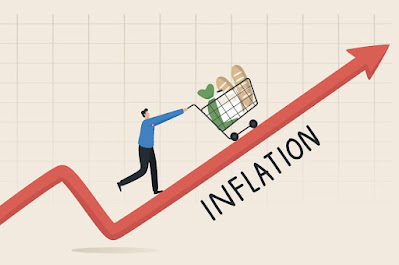What's Up With Greece?
 |
| 60% of Greeks voted no to austerity |
To be honest, I don't 100% understand what's going on.
However, this is what I do understand.
Apparently, one of the previous Greek governments borrowed a lot of money to pay their debt obligations. Of course, this meant paying more debt as interest compounded. Eventually, this meant borrowing more and more money until they needed a bailout (another loan) to the tune of at least 100 billion euros.
Frankly, this situation mirrors that of personal finance. In order to make ends meet, people borrow money from their line of credits, credit cards, or even visit the predatory payday loans. By doing so, they need to pay off the interest charges. If they don't keep things under control, the interest compounds and they are forced to borrow more in order to satisfy their creditors. Generally, this means paying the minimum balance or only making the interest payment on their line of credit.
See the similarities?
When I watch those personal finance shows with the finance lady slapping people upside the head because they have $25,000 in credit card debt, financed two cars, and purchased three motorcycles, we can see that some simple principles could have helped in this situation. One of her main mantras is don't spend more than your bring home. If you do spend more, that means you're using credit to finance your lifestyle. When she's going through the finances of these couples, she usually tells them to consolidate their debt into the lowest interest rate and to start spending less. For those situations where that isn't enough, she'd even advise the couples to earn more or to sell some of their stuff to pay down their debt. Most times, these simple steps have the couples on the path of being debt free in 3 years or less!
If we transfer the principles of personal finance to the Greek situation, we can see how Greece could have gotten out of debt by now.
- They needed to spend less money.
- They needed to bring in more money.
- They needed to sell assets.
Simple right?
Well, not quite. As some of the conditions for the bailout, Greece was supposed to do those things.
Greece tried to cut expenses. They did shut down their state television station. They cut of a lot of public sector jobs despite massive protests. They may have increased the minimum retirement age to more protests.
Unfortunately, for Greece, something like 60% of their debt obligations are for retiree pensions. That's a lot of retired people. With everyone living longer, that figure will only increase.
Well, Greece tried to collect on income taxes. From what I remember, Greece has a fairly high rate of income tax evasion. Of course, people didn't like that, so they protested or found more ways to hide their income.
Thirdly, Greece sold none of their state assets. Not sure what assets they were supposed to sell. It doesn't matter as they didn't sell anything to generate funds.
So what happened? Well, 5 years later, the people were sick of these "austerity" measures and they eventually elected a new Government in defiance of this plan. You would too if you've had it so good for so long.
The new Government started reversing the austerity measures the previous government implemented and went on a spending spree (more or less, among many expenditures was the reboot of the state television that was shut down previously).
In personal finance, that's like the family electing the kids to handle the finances.
It is no surprise that Greece is begging for more money again.
If you went to the bank for a consolidation loan, was approved, and then spent the next 5 years racking up credit, would you be able to get another consolidation loan when you start to run out of money? Probably not.
Well, the same thing is happening in Europe. Greece is begging for more money, but whoever is lending the money won't because they don't think Greece will be able to pay them back.
They are looking for assurances that Greece will pay back the money. Originally, the assurances were in the forms of austerity. However, with the current government (and most recently the citizens in the referendum) saying no, you understand why the creditors are hesitant in lending the money.
If you racked up hundreds of thousands in debt, asked to borrow more money from the bank without intending to change your habits, what chance does the bank have to recoup their money?
Pretty much none.
That's pretty much what's happening here.
How this is affecting the world, I have no idea.
Is Walmart going to sell less t-shirts? Probably not.
Are people going to drink less Coca-Cola? Unlikely.
Will McDonald's go out of business? Not unless they put all their money into Greek bonds.
So then why are people expecting another market crash? While I can't say for sure, I don't think one will happen. But what do I know? I'm just a Loonie IT Guy. Of course, if a stock market crash were to occur, I would welcome it with open arms and with every spare penny wifey and I have.
Aside from that, no one knows how this will turn out. We're just going to have to get used to being inundated with news stories about Greece for the next few months.


Comments
Post a Comment